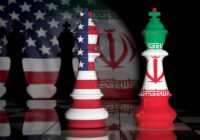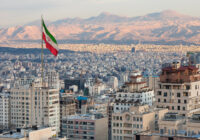The democratic values championed by the Land of the Free are set to reach new regions. The familiar narrative of promoting freedom alongside mutual economic benefits has found fresh ground in Central Asia.
The Russia—Ukraine conflict and strained relations with China have urged the United States to move its focus to Eurasia. Lately, Washington has been prioritizing its engagement with Central Asia, particularly with its closest regional partner — Kazakhstan.
Last September, US President Joe Biden hosted a summit with the presidents of the five Central Asian states — Kazakhstan, Tajikistan, Turkmenistan, Uzbekistan and Kyrgyzstan.
Western values go eastward
The Biden administration and other Western governments view Central Asia as essential for establishing trans-Eurasian trade routes that bypass Russia. The focus is on the development of the Trans-Caspian International Transport Route, which would connect China to Europe via Central Asia. The US also recognizes Central Asia for its valuable resources, including oil and minerals. Kazakhstan, for example, has vast reserves of oil, uranium and other metals.
To ensure long-term cooperation in these areas, Washington should help foster political stability and economic growth in the region by mitigating the influence of authoritarian regimes. To succeed, the US should plan on securing the principles of democracy and human rights hand-in-hand with willing Central Asian governments. Promoting democratic values creates an environment that is conducive to sustained partnerships. A commitment to human rights and democracy ensures better protection of vulnerable populations, particularly women and children; supports social cohesion and long-term stability; and enhances the international reputation of Central Asian countries, making them more attractive to foreign investors.
The US and Kazakhstan — unlikely allies?
In March, US Secretary of State Antony Blinken and Kazakh Foreign Minister Murat Nurtleu met in Washington, DC, to explore ways of strengthening the US–Kazakhstan partnership. Their discussions centered on joint investment. As proof of their established partnership, the two leaders agreed to host the upcoming meeting of the US–Central Asia Trade and Investment Framework Agreement Council in Astana, the Kazakh capital
In this context, the third annual United States-Kazakhstan High-Level Dialogue on Human Rights and Democratic Reforms in Astana last month is a welcome development. The parties discussed cooperation on implementing reforms initiated by Kazakh President Kassym-Jomart Tokayev. These reforms will protect the rights of people with disabilities, combat human trafficking, ensure freedom of assembly and speech, support media development, and address asset recovery and corruption. The United States reaffirmed its “strong support for the full implementation of President Tokayev’s reform agenda and commended Kazakhstan for progress made in the advancement of human rights.”
By supporting Kazakhstan in its democratic transition, Washington can open new avenues for economic collaboration and trade. As Kazakh law aligns more closely with democratic values and the rule of law, the country becomes a more attractive destination for foreign direct investment. Foreign investors are more likely to engage in regions where there is political stability, respect for human rights, and a transparent legal system, as these factors reduce risks and create a conducive environment for business operations and growth. In this context, the United States welcomed the law passed in Kazakhstan on April 15th which criminalized the penalties for domestic violence and toughened the punishment for violence against children.
Kazakhstan is already America’s top economic partner in the region, with bilateral trade amounting to $4 billion in 2023 and the total figure since independence reaching more than $62 billion.
The first step towards stability.
Though surely improved, Kazakhstan’s democratic journey is far from over. Tokayev’s election in 2019 has guaranteed Kazakhstan much-needed political reforms, as well as constitutional amendments in 2022. These reforms have decentralized power, limited presidential authority and increased the influence of an elected parliament. The change has also grown the independence of the judiciary and simplified the process for registering new political parties, resulting in a more representative parliament.
To conclude, the US should prolong its support of the Kazakh leadership in its efforts to modernize the country’s political system and improve the human rights environment, regardless of who is re-elected for a second term in November. Undoubtedly, by doing so, the US confirms its global leadership role and extends its list of beneficial partnerships. After all, promoting global democracy and upholding international norms has always aligned with the United States’ strategic interests.
[Nermina Salkic edited this piece.]
The views expressed in this article are the author’s own and do not necessarily reflect Fair Observer’s editorial policy.
Support Fair Observer
We rely on your support for our independence, diversity and quality.
For more than 10 years, Fair Observer has been free, fair and independent. No billionaire owns us, no advertisers control us. We are a reader-supported nonprofit. Unlike many other publications, we keep our content free for readers regardless of where they live or whether they can afford to pay. We have no paywalls and no ads.
In the post-truth era of fake news, echo chambers and filter bubbles, we publish a plurality of perspectives from around the world. Anyone can publish with us, but everyone goes through a rigorous editorial process. So, you get fact-checked, well-reasoned content instead of noise.
We publish 2,500+ voices from 90+ countries. We also conduct education and training programs
on subjects ranging from digital media and journalism to writing and critical thinking. This
doesn’t come cheap. Servers, editors, trainers and web developers cost
money.
Please consider supporting us on a regular basis as a recurring donor or a
sustaining member.
Will you support FO’s journalism?
We rely on your support for our independence, diversity and quality.











Comment